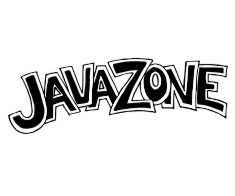| JavaZone - The Conference We Missed |
| Written by Nikos Vaggalis | |||
| Friday, 25 October 2024 | |||
|
Amongst the many Java related conferences, this one flew under the radar. A real shame because it had many great sessions.
Looking at the schedule, there's nothing to be embarrassed about compared to other Java conferences. It covers everything from Java 22 and GraalVM to Generative AI, Spring Boot, architecture, and best practices. All good, however many of the talks were presented in the Norwegian language, catering to the local audience of developers. However, a significant number of talks were delivered in English and from those ones we picked the most interesting to watch: Pkl: Safe and Maintainable Config for Java Apps and Infrastructure Pain-free Functional Programming with Java 22 Why You Should Use Quarkus For Your Next Project Offline-first Architecture - How to survive without internet?
The JavaZone session explores those concepts and presents an optimized architecture which supports Offline and synchronization scenarios. Finally, "Contextual search with vector search: exploring your options with open source tools" must be in the A list. Vectors is the hottest topic right now and this session shows how to create such vector representations with different data solutions like ClickHouse, OpenSearch, PGVector and others. I singled out PGVector, an extension for PostgreSQL that renders it a viable alternative to specialized vector stores used in LLMs, which we've written about in "Turn PostgreSQL Into A Vector Store" . The recordings are not available on YouTube but are instead hosted by Vimeo. You can access them through the event's main site or by going straight to Javazone's Vimeo page. In conclusion, JavaZone is great and deserves to be among the top Java conferences.
More Information
Related ArticlesSpring One 2024 Sessions Now Available Online TinyBase And The Local First Movement
To be informed about new articles on I Programmer, sign up for our weekly newsletter, subscribe to the RSS feed and follow us on Twitter, Facebook or Linkedin.
Comments
or email your comment to: comments@i-programmer.info |
|||
| Last Updated ( Friday, 25 October 2024 ) |





